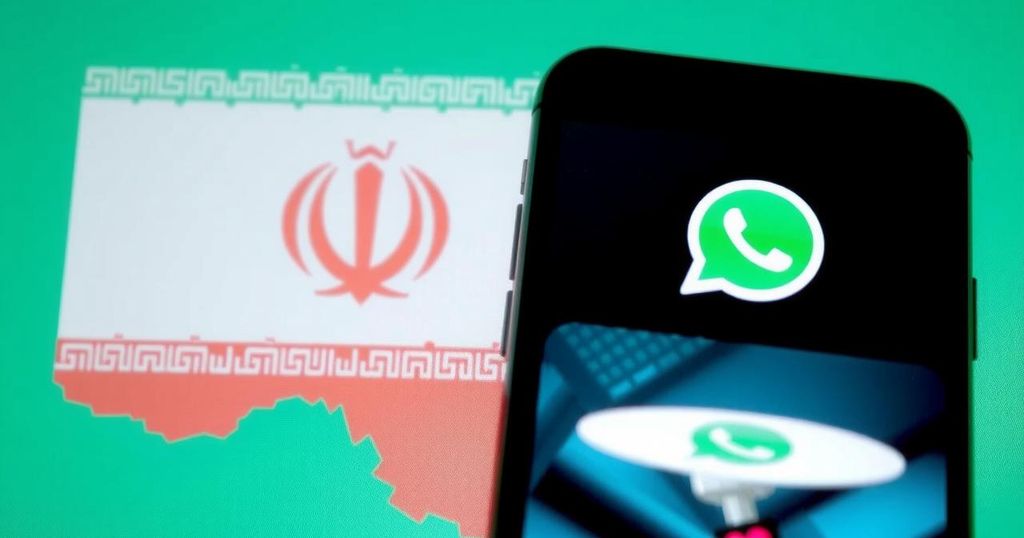Iran has lifted the two-year ban on WhatsApp; however, users are largely unaffected as other important platforms remain blocked. The move is seen as a small concession amidst ongoing economic and political challenges.
In a notable but largely overlooked development, Iran’s Supreme Council of Cyberspace recently lifted the two-year ban on the messaging application, WhatsApp. However, many Iranian users are finding little change, as they continue to rely on virtual private networks (VPNs) to access popular platforms such as Instagram and Telegram, which remain blocked. For Ardavan Yousefi, a Tehran-based cafe owner, this technical adjustment was met with indifference, stating, “Oh wow, is it really removed now?” After testing the restored service, he remarked, “It doesn’t change much, since I still need VPNs for Instagram, Telegram and other platforms.”
The decision to lift the ban on WhatsApp comes amidst growing economic pressures in Iran, including inflation, currency devaluation, and international sanctions. Daily life is further disrupted by energy shortages and increased air pollution, leading to widespread facility closures. Amir Rashidi, from the US-based Miaan Group, interpreted the move as a superficial gesture meant to appease public discontent in light of the ongoing crises.
Despite this positive development for WhatsApp users, online communication in Iran faces continued challenges. The cyber council’s decision reflects a selective approach to internet freedom, with WhatsApp being deemed less of a threat to the government compared to other platforms. Additionally, lifting restrictions on Google Play was also viewed as a way to maintain stability, as it is considered a nonpolitical service. The broader context includes the government’s historical response to protests, including recent unrest triggered by the death of Mahsa Amini, which led to the closure of several applications.
The newly elected President Masoud Pezeshkian has expressed intentions to ease internet restrictions, yet this is met with resistance from conservative lawmakers, who argue that any relaxation must align with Islamic values. While critics assert that these restrictions impede communication and impose costly VPN reliance—over 80% of online Iranians reportedly use VPNs—it remains unclear how extensively the government will amend these limitations in the near future. Communication Minister Sattar Hashemi characterized the WhatsApp ban lift as an initial step toward enhanced internet freedoms, even as users like Amir Heidari remain cautiously optimistic about the potential for positive change.
The topic centers on the recent lifting of a long-standing ban on WhatsApp in Iran, a decision that coincides with broader internet restrictions still imposed on various other social media platforms. Iranian citizens have faced significant challenges in accessing online communication tools, particularly following social unrest linked to political and social issues. The context includes the ongoing economic crises and political tensions that shape internet policy and user experience in the country.
In conclusion, while the lifting of the WhatsApp ban signals a potentially positive shift towards internet freedom in Iran, the reality for many users remains unaltered as they continue to rely on VPNs to navigate broader restrictions. Despite government pledges for reform, the landscape of online communication in Iran is shaped by significant political and economic pressures, which complicate any anticipated progress. As such, many Iranians express skepticism about the tangible benefits of the changes announced today.
Original Source: www.hindustantimes.com






